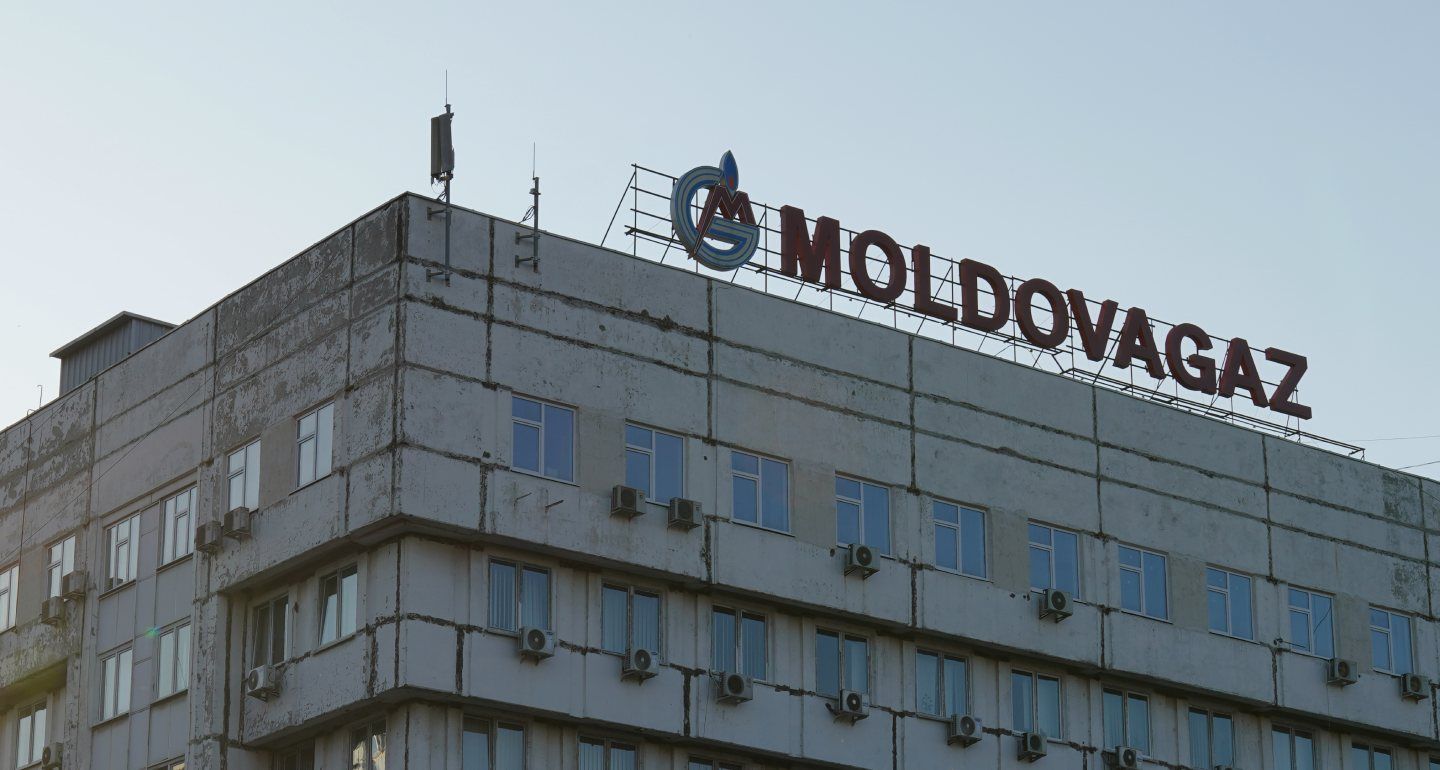Arms supplies from Russia to Iran will not only continue, but could grow significantly if Russia gets the opportunity.
Nikita Smagin
{
"authors": [
"Vladimir Solovyov"
],
"type": "commentary",
"blog": "Carnegie Politika",
"centerAffiliationAll": "",
"centers": [
"Carnegie Endowment for International Peace",
"Carnegie Russia Eurasia Center"
],
"englishNewsletterAll": "",
"nonEnglishNewsletterAll": "",
"primaryCenter": "Carnegie Russia Eurasia Center",
"programAffiliation": "",
"programs": [],
"projects": [],
"regions": [
"Moldova",
"Russia",
"Ukraine",
"Eastern Europe"
],
"topics": [
"Energy",
"Foreign Policy",
"Climate Change"
]
}
Source: Getty
The breakaway republic of Transnistria has been plunged into an energy crisis following the end of Ukrainian transit of Russian gas. If it is Kyiv and not Moscow that comes to the unrecognized statelet’s aid, Russia risks losing any remaining influence in the region.
People in Moldova’s breakaway state of Transnistria have been living in freezing apartments since the heating and hot water were switched off on January 1. Initially, rolling electricity blackouts lasted a few hours every day. But within a week, they were increased to at least eight hours, meaning people were even struggling to use electric heaters to keep warm. In response, the authorities have increased the production of basic wood stoves and boosted firewood supplies. Schools have extended the Christmas holidays, and factories have furloughed staff.
The main reason for the crisis is that Ukraine stopped the transit of all Russian gas through its territory on January 1. For decades, Transnistria had received gas along that route. Kyiv warned for many months in advance that it would not be extending the existing transit agreement with Russia—and kept its promise.
The Trans-Balkan pipeline could have been used as an alternative, but Russian state-owned gas giant Gazprom declined to book any volumes along that route and announced Moldova would receive no gas at all from January 1. The company said its decision was a result of Moldova “refusing to address its gas debts.” Gazprom estimates Moldova’s debt at $709 million, while Moldova, referencing an international audit, believes it owes just $8.6 million.
From the spring of 2022 until the end of the Russian gas supplies at the beginning of this month, Moldova only received enough gas to supply Transnistria. Despite its contract with Gazprom, Chișinău has not bought any Russian gas since 2022—instead, it has been purchasing fuel from European suppliers at market prices.
Transnistria has not paid a cent to Gazprom for gas since 2005. Even though its accumulated debt is about $11.1 billion, Moscow has never demanded payment. The free gas has been a form of Russian subsidy for the unrecognized republic, keeping local utility bills extraordinarily low. Transnistrian consumers pay about 6 cents per cubic meter of gas, while those in the rest of Moldova are charged about $1 for the same amount.
The Transnistrian authorities claim the free gas they received was “humanitarian aid for the Transnistrian people.” But that’s not quite true. The money Transnistrians paid in utility bills went straight to the authorities—who spent it how they wished.
After Gazprom’s announcement it was halting supplies, the Moldovan government accused Moscow of causing an energy crisis and engaging in “energy blackmail.” According to Moldovan President Maia Sandu, Russia’s aim is to destabilize her country and influence the outcome of parliamentary elections later this year. Ukrainian President Volodymyr Zelensky has given a similar analysis of the situation.
Moscow, in turn, blames Kyiv and Chișinău. The Russian Embassy in Moldova issued a statement claiming the crisis was caused by “the Chișinău government, who ignored the many problems in its relationship with Gazprom.” The embassy also criticized Ukraine for refusing to extend the gas transit agreement. Similarly, Transnistria blames Chișinău for triggering the crisis by failing to honor its debts to Gazprom.
All of these arguments are flawed. While Chișinău blames Moscow, it knew in advance that gas transit through Ukraine was ending. Not only did Chișinău seemingly not request that Kyiv let in the Russian gas needed by Transnistria (at least, no such requests are known of), it failed to prepare for an energy crisis. In addition, Moldova benefitted from Russia’s supply of free gas to Transnistria, as it bought cheap, gas-generated electricity from the breakaway state. Now, Moldova has had to switch to buying more expensive electricity from neighboring Romania, which has led to utility price hikes and will likely dent the government’s popularity.
For its part, Ukraine, which has accused Moscow of fomenting the crisis in Moldova, has not clarified whether it would allow Russian gas to reach Moldova via the Trans-Balkan pipeline (which also passes through Ukrainian territory). All Zelensky has said is that Ukraine might allow the transit of Russian gas so long as no payment was transferred to Russia until after the war.
Tiraspol, which has blamed Chișinău, is not an innocent party either. If Transnistria really was an independent state, as the local authorities claim, then how could the gas supply disruption be entirely Moldova’s fault? Tiraspol has also dismissed offers from Chișinău to help manage the crisis, as well as rejecting assistance to buy gas on the European market.
As for Russia, its claims about Moldova’s gas debts do not hold up to scrutiny. As a result of the lack of gas, it is Transnistria, not Moldova, which is suffering—and Transnistria has always been characterized by some in Moscow as “the edge of Russian land.” Indeed, Russia supplied gas to Transnistria for years, regardless of Moldova’s debts. Statements by Russian officials that they will not allow any harm to come to Russian citizens in Transnistria now ring decidedly hollow.
The spectacle of hundreds of thousands of Russian citizens in Transnistria freezing in their under-heated apartments could turn out to be a disaster for Russia. Even if Moscow is hoping that rising utility bills will fuel anger against the pro-Europe government in Chișinău, that is a very risky strategy.
Ukraine would certainly prefer not to see the current Moldovan government replaced by a government that was anti-EU, or even pro-Russian (Moldova has pro-Russian opposition parties). Indeed, Ukraine—with its reserves of coal and gas and its pipeline network—is already involved in attempts to resolve the crisis. Sandu and Zelensky discussed the situation by telephone on January 8, with Zelensky expressing willingness to ship coal to Moldova.
If Tiraspol’s savior turns out to be Ukraine—not Russia—then the Kremlin’s influence in the region, which has already been damaged by the full-scale invasion of Ukraine in 2022, could dissipate entirely. Ukraine has a chance to beat Russia in Transnistria without firing a shot.

Vladimir Solovyov
Journalist
Carnegie does not take institutional positions on public policy issues; the views represented herein are those of the author(s) and do not necessarily reflect the views of Carnegie, its staff, or its trustees.
Arms supplies from Russia to Iran will not only continue, but could grow significantly if Russia gets the opportunity.

Nikita Smagin
The use of technology to mobilize Russians to vote—a system tied to the relative material well-being of the electorate, its high dependence on the state, and a far-reaching system of digital control—is breaking down.

Andrey Pertsev
Putin is stalling, waiting for a breakthrough on the front lines or a grand bargain in which Trump will give him something more than Ukraine in exchange for concessions on Ukraine. And if that doesn’t happen, the conflict could be expanded beyond Ukraine.

Alexander Baunov
As discussions about settlement and elections move from speculation to preparation, Kyiv will have to manage not only the battlefield, but also the terms of political transition. The thaw will not resolve underlying tensions; it will only expose them more clearly.

Balázs Jarábik
Disillusioned with the West over Gaza, Arab countries are not only trading more with Russia; they are also more willing to criticize Kyiv.

Ruslan Suleymanov